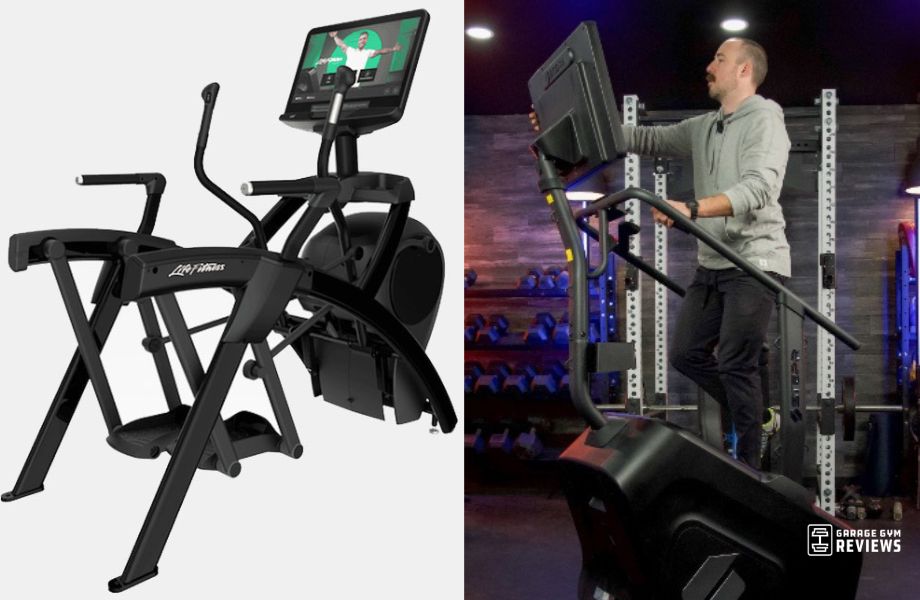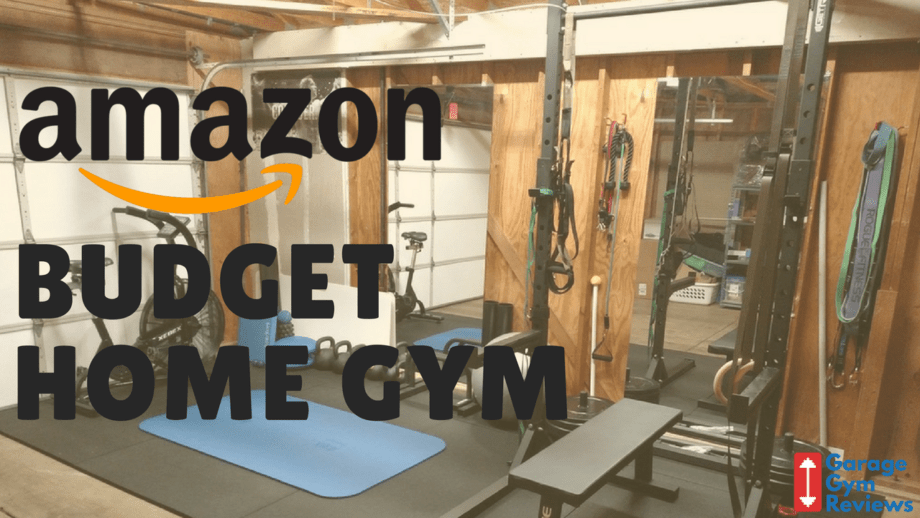Let’s be honest: Getting your cardio in often feels like a chore. However, with the right equipment (and attitude), it can be a challenging and rewarding part of your fitness journey. Enter the Arc trainer and the stair climber—two titans competing for the title of the best cardio machine.
Whether you’re looking to torch calories, improve your heart health, or simply enjoy a low-impact cardio workout, these machines offer unique benefits to help you reach your goals. But which one is right for you?
RELATED: Stair Climber Vs Elliptical
As a certified personal trainer (CPT) who’s taught clients how to use elliptical machines, squat racks, and everything in between, I’ll dive deep into the Arc trainer vs stair climber debate to give you the knowledge you need to make an informed decision for your home gym.
Quick Look: Arc Trainer Vs Stair Climber
The Arc trainer and stair climber are popular cardio machines that can provide effective workouts. While the Arc trainer offers a low-impact, full-body workout that is gentle on the joints, the stair climber focuses on high-intensity lower-body conditioning by simulating the action of climbing stairs.
Who Should Use an Arc Trainer
- Individuals with joint issues: The Arc trainer’s low-impact design is ideal for those with knee, hip, or joint concerns.
- Beginners: Its adjustable resistance and pre-programmed workouts make it suitable for those new to exercise.
- Full-body fitness seekers: A total-body Arc trainer engages both the upper and lower body, making it great for comprehensive conditioning.
- People in rehabilitation: Those recovering from injuries can benefit from an Arc trainer’s gentle, controlled movements.
Who Should Use a Stair Climber
- People who only want to train their lower body: If you would rather leave your top half out of it, the stair climber emphasizes your legs and core.
- People who want to build strength: Whether you use a pair of ankle weights or just your body weight, a stair climber workout can provide a solid strength-building stimulus for your glutes, calves, quads, and hamstrings.
- Home gym owners with limited space: Available in folding and compact designs, a stair climber is more suitable for home gym owners concerned about their equipment’s footprint.
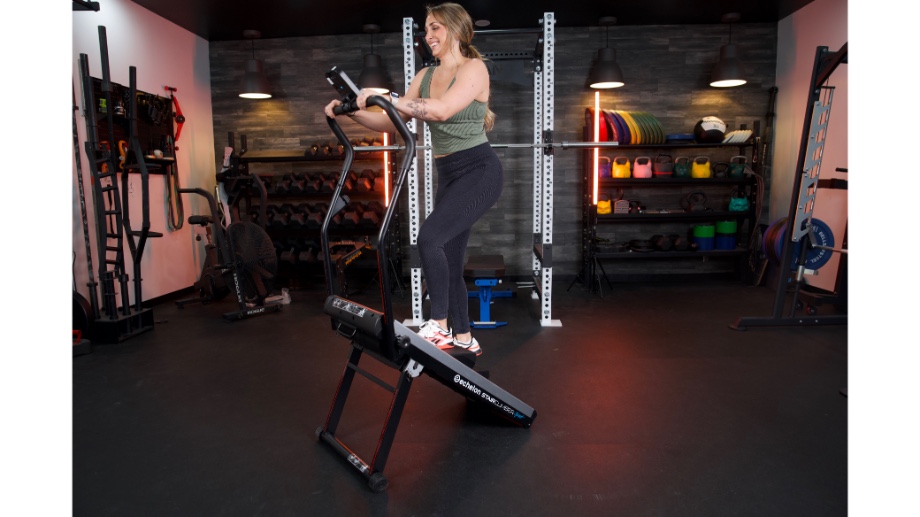
RELATED: 8 Best Stair Climbers for Home
Arc Trainer Vs Stair Climber: What Are They?
Before breaking down the key similarities and differences between these two popular pieces of cardio equipment, let’s give a quick overview of how each one works.
Arc Trainer
The Arc trainer, particularly the Cybex Arc Trainer from Life Fitness, is a versatile piece of fitness equipment that combines elements of an elliptical trainer and a stair stepper. Designed for a low-impact, joint-friendly workout, it’s a favorite among fitness enthusiasts looking to challenge their cardiovascular system without placing too much stress on their knees, ankles, and hips.
RELATED: Arc Trainer vs Elliptical
While all Arc trainers feature foot plates that follow a curved path, not every machine is built the same. A lower-body Arc trainer has fixed arms, so you’ll only engage your lower body and core. On the other hand, a total-body Arc trainer has moveable arms that allow you to involve your upper body in the workout.
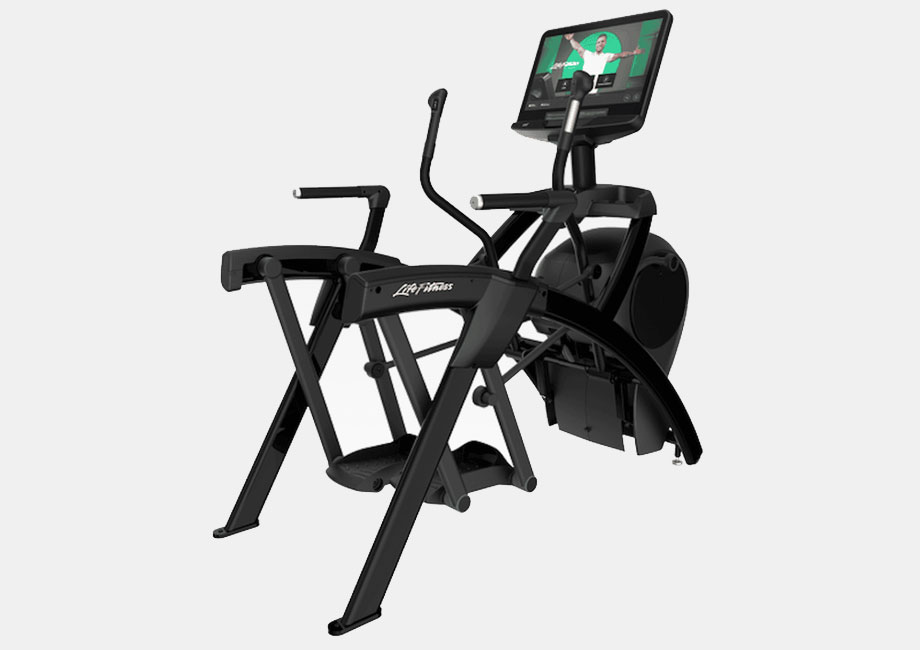
Stair Climber
The stair climber, also known as the stair stepper or StairMaster, is a fairly straightforward cardio machine that simulates the action of climbing stairs. Its rotating steps provide a high-intensity, low-impact workout that’ll challenge your mind and body to keep pace as you climb a seemingly never-ending set of stairs.
RELATED: StairMaster Vs Treadmill
Unlike the Arc trainer, the stair climber does not involve your upper body. Rather, this machine targets your glutes, quads, hamstrings, and calves, providing an effective strength and endurance workout. Known for its ability to raise your heart rate and maximize calorie burn for fat loss, the stair climber is a staple in commercial gyms and has become more popular among the home gym community in recent years.
Key Similarities Between an Arc Trainer and a Stair Climber
While the Arc trainer and stair climber have distinct features, they share several key similarities that make them both excellent choices for cardio training. Let’s explore what each machine has in common.
Both Provide an Effective Cardiovascular Workout
Both the Arc trainer and stair climber allow you to enjoy the benefits of cardiovascular exercise. These machines elevate your heart rate, promoting better blood circulation and oxygen delivery. Research shows that cardiovascular exercise has multiple benefits, including:
Of course, how you structure your workout will impact your results. But whether you choose the step-by-step route or the glide-and-go path, you can expect to give your heart and lungs a much-needed challenge.
RELATED: 3 Beginner Cardio Workouts
Both Engage Your Lower-Body Muscles
Both machines effectively target and engage multiple muscle groups, particularly your glutes, quads, calves, and hamstrings. Developing muscular strength and endurance can have a positive carryover when it’s time to hit the weights, as your body will be better conditioned to excel in lower-body strength training.
Both Help Burn Calories
One of the main attractions of the Arc trainer and stair climber is their ability to burn many calories in a relatively short time. According to the American Council on Exercise’s (ACE) physical activity calorie counter, a 175-pound person can burn about 317 calories in 30 minutes of stair climbing.
While no studies have been conducted to determine the actual number of calories you can burn on an Arc trainer, MyFitnessPal estimates the calories burned with the same user weight and workout duration to be 437. Even if that’s overshooting it by 10 or 20%, that would still represent quite a calorie-burning feat.
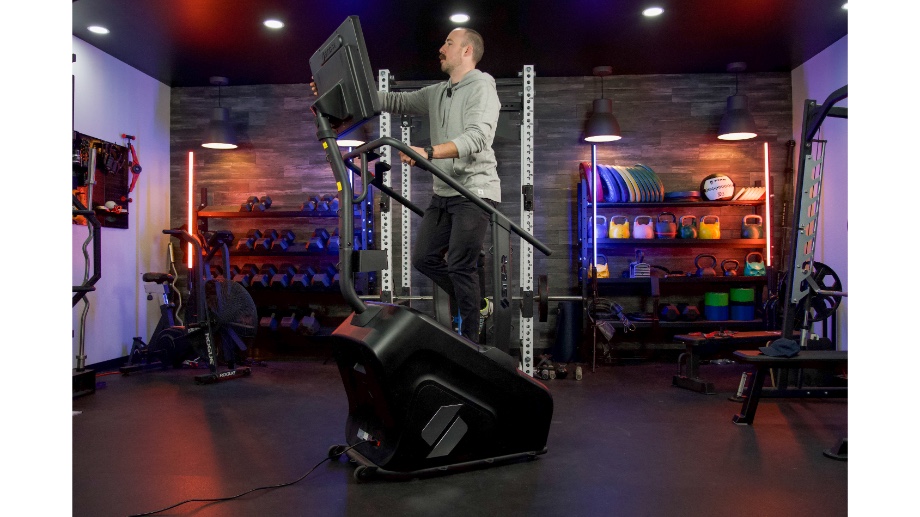
RELATED: Activities That Burn the Most Calories
Both Have Adjustable Intensity Levels
The Arc trainer and stair climber offer adjustable resistance and intensity settings, allowing users to customize their workouts based on their fitness levels and goals. Whether you are a beginner looking for a low-resistance workout or an advanced athlete seeking a challenging session, these machines can be tailored to meet your needs.
Important Differences Between an Arc Trainer and a Stair Climber
Although the Arc trainer and stair climber share some similarities, they also have several important differences that set them apart. These differences can influence your choice based on your fitness needs, available space, budget, and other factors.
Price Range
Arc trainers are generally more expensive, ranging from $8,000 to $14,000, depending on the model and features. This higher cost can be attributed to their complex design, advanced technology, and full-body workout capabilities.
Meanwhile, stair climbers are typically more affordable, ranging from $1,500 to $5,000. The simpler design and focus on lower-body engagement make them a more budget-friendly option for many home gym owners.
RELATED: STEPR Review
Dimensions
The size of these machines can also influence your decision, especially if you have limited space. Arc trainers are generally larger, requiring more floor space due to their design and moving parts. They can be up to 75 inches long and 36 inches wide, which may not be suitable for smaller home gyms.
On the other hand, stair climbers are more compact and typically require less space. They usually measure around 50 inches long and 32 inches wide, making them a more footprint-friendly choice for those with limited room.
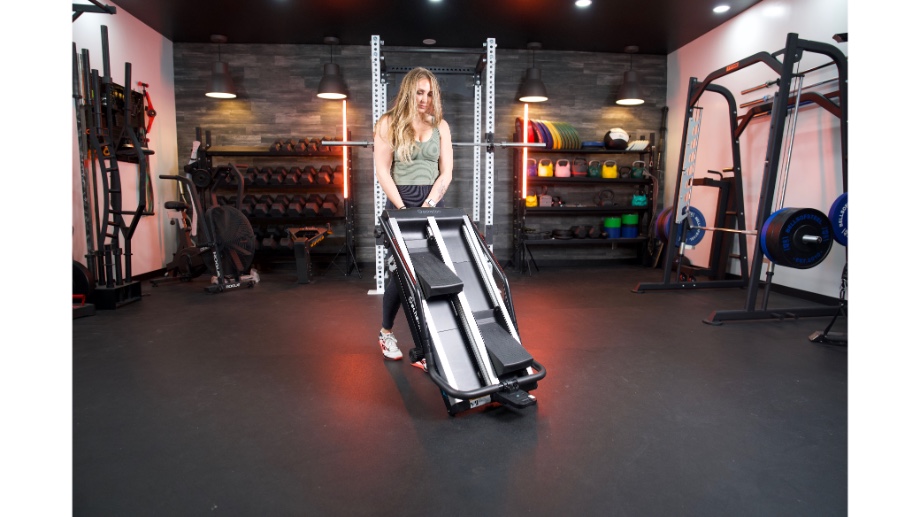
Muscle Targeting
While both machines engage multiple muscle groups, they do so in different ways. The Arc trainer provides a full-body workout, as the handles allow for upper-body movement, engaging your arms, shoulders, and chest.
In contrast, the stair climber primarily targets the lower body, focusing on your glutes, quads, hamstrings, and calves. This makes it an excellent choice for those specifically looking to strengthen their lower body.
Impact on Your Joints
One significant difference between these two machines is their impact on your joints. The Arc trainer is designed to be low-impact, reducing stress on your knees, hips, and lower back. This makes it suitable for individuals with joint issues or those recovering from injuries.
On the other hand, while effective for building lower-body strength, the stair climber can be more demanding on the knees and joints—especially if you don’t use proper form. As much as I enjoy the challenge of stepping up my game on the stair climber, it isn’t as friendly on my feet, ankles, and knees as an Arc trainer or elliptical.
RELATED: The Best Ellipticals for Home
Design and Mechanics
The Arc trainer features a unique design that combines elements of an elliptical and a stair climber. It offers a smooth, gliding motion similar to cross-country skiing when set on a low incline level. With foot pedals and handles, it looks, feels, and performs much differently than a stair climber.
In contrast, a stair climber typically features a revolving staircase or pedals you step on. This simpler design focuses primarily on lower-body engagement, making it more intense for your legs.
How To Choose Between an Arc Trainer and a Stair Climber
When deciding between an Arc trainer and a stair climber for your home gym, consider the following factors to ensure you make the best choice.
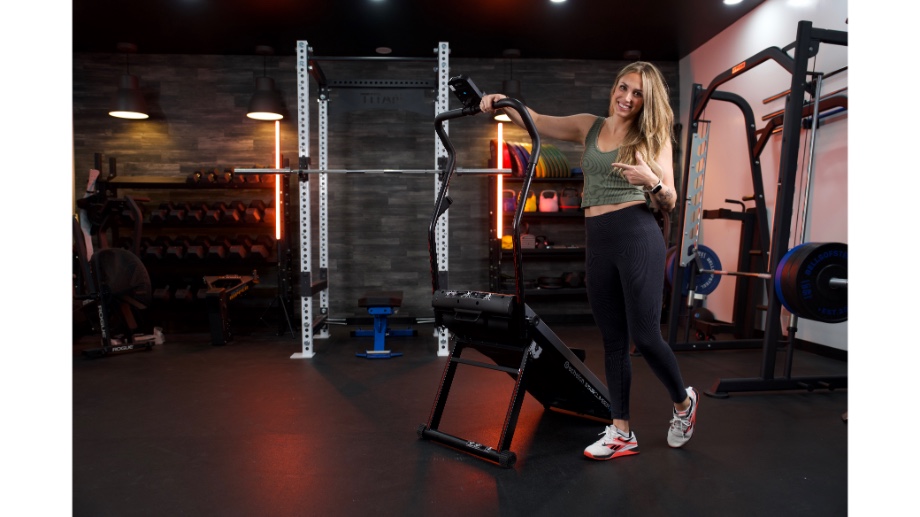
Your Fitness Goals
A total-body Arc trainer may be more suitable if you seek a full-body workout, as it engages both upper and lower body muscles. For those focused solely on lower-body strength and endurance, the stair climber is ideal due to its emphasis on the glutes, quads, hamstrings, and calves. Your specific fitness objectives will be crucial in determining which machine aligns best with your goals.
Impact on Your Joints
Consider the Arc trainer if you have joint issues or are recovering from an injury. Its low-impact design reduces stress on the knees, hips, and lower back.
On the other hand, if joint impact is not a concern and you prefer high-intensity workouts, the stair climber can be an excellent option.
Footprint
Measure your available space before purchasing. Arc trainers are larger and require more floor space (and a bigger budget). Stair climbers are more compact, making them suitable for smaller home gyms. Ensure you have sufficient room for comfortable use and movement around the machine.
Budget
How much financial flexibility do you have for a cardio machine? An Arc trainer usually costs at least double the price of a stair climber, which could make the latter a more realistic option.
Determine the features that are most important to you and whether the higher cost of the Arc trainer justifies its additional capabilities. Balancing cost with functionality is key to making a wise investment in any piece of fitness equipment.
RELATED: Best Budget Home Gym Equipment
Workout Variety
While both machines offer adjustable resistance levels, the Arc trainer provides more versatility if you enjoy varied workout programs. The stair climber offers fewer program options but is highly effective for consistent lower-body conditioning. Your preference for diverse training routines versus focused lower-body workouts should help steer you in the right direction.
User Experience and Comfort
If possible, try out both machines to see which one feels more comfortable and intuitive to use. The Arc trainer’s handles provide additional stability and upper-body engagement. The stair climber’s straightforward, repetitive motion can be easier to master but may become monotonous over time. Ultimately, a stair climber may not be the best choice if you get bored easily.
Maintenance and Durability
Consider each machine’s maintenance requirements and durability. Arc trainers may require more upkeep due to their complex design and moving parts. Stair climbers are generally simpler in design, potentially leading to lower maintenance needs. Evaluating long-term maintenance and durability can save you time, money, and headaches in the future.
Arc Trainer Vs Stair Climber: Final Thoughts
Choosing between the Arc trainer and the stair climber ultimately depends on your fitness goals, preferences, budget, and other factors. Both exercise machines offer intriguing benefits, from calorie-burning and low-impact workouts to enhanced cardiovascular health and muscle development. Understanding their similarities and differences will ultimately allow you to select the best cardio machine to round out your home gym setup.
So, will you step up and climb, or hold onto the rails and start gliding?
Arc Trainer Vs Stair Climber: FAQs
How effective is the Arc trainer?
The Arc trainer is highly effective for cardiovascular health, calorie burning, and muscle toning. It offers a low-impact workout that engages multiple muscle groups.
Does the Arc trainer build glutes?
Yes, the Arc trainer effectively targets your glutes with its curved path and gliding range of motion. However, it’s also important to include strength training exercises to develop stronger, more muscular glutes.
RELATED: 16 Different Glute Exercises at Home
How many calories do you burn on the Arc trainer for 30 minutes?
On average, you can burn between 300 to 400 calories in a 30-minute session on the Arc trainer. The number of calories burned depends on the intensity of the workout and individual factors such as height and weight.
What muscles does the stair climber work compared to the Arc trainer?
The stair climber primarily targets the quadriceps, hamstrings, glutes, and calves, while the Arc trainer also engages the upper-body muscles.
Which burns more calories: the Arc trainer or the stair climber?
Both machines are effective for calorie burning, but a total-body Arc trainer can burn slightly more calories due to its full-body engagement and higher resistance levels.
References
- Pinckard, K., Baskin, K. K., & Stanford, K. I. (2019). Effects of Exercise to Improve Cardiovascular Health. Frontiers in Cardiovascular Medicine, 6. https://doi.org/10.3389/fcvm.2019.00069
- Kandola, A., Ashdown-Franks, G., Stubbs, B., Osborn, D. P. J., & Hayes, J. F. (2019). The association between cardiorespiratory fitness and the incidence of common mental health disorders: A systematic review and meta-analysis. Journal of affective disorders, 257, 748–757. https://doi.org/10.1016/j.jad.2019.07.088
- Dolezal, B. A., Neufeld, E. V., Boland, D. M., Martin, J. L., & Cooper, C. B. (2017). Interrelationship between Sleep and Exercise: A Systematic Review. Advances in Preventive Medicine, 2017. https://doi.org/10.1155/2017/1364387
- Nieman, D. C., & Wentz, L. M. (2019). The compelling link between physical activity and the body’s defense system. Journal of Sport and Health Science, 8(3), 201-217. https://doi.org/10.1016/j.jshs.2018.09.009


